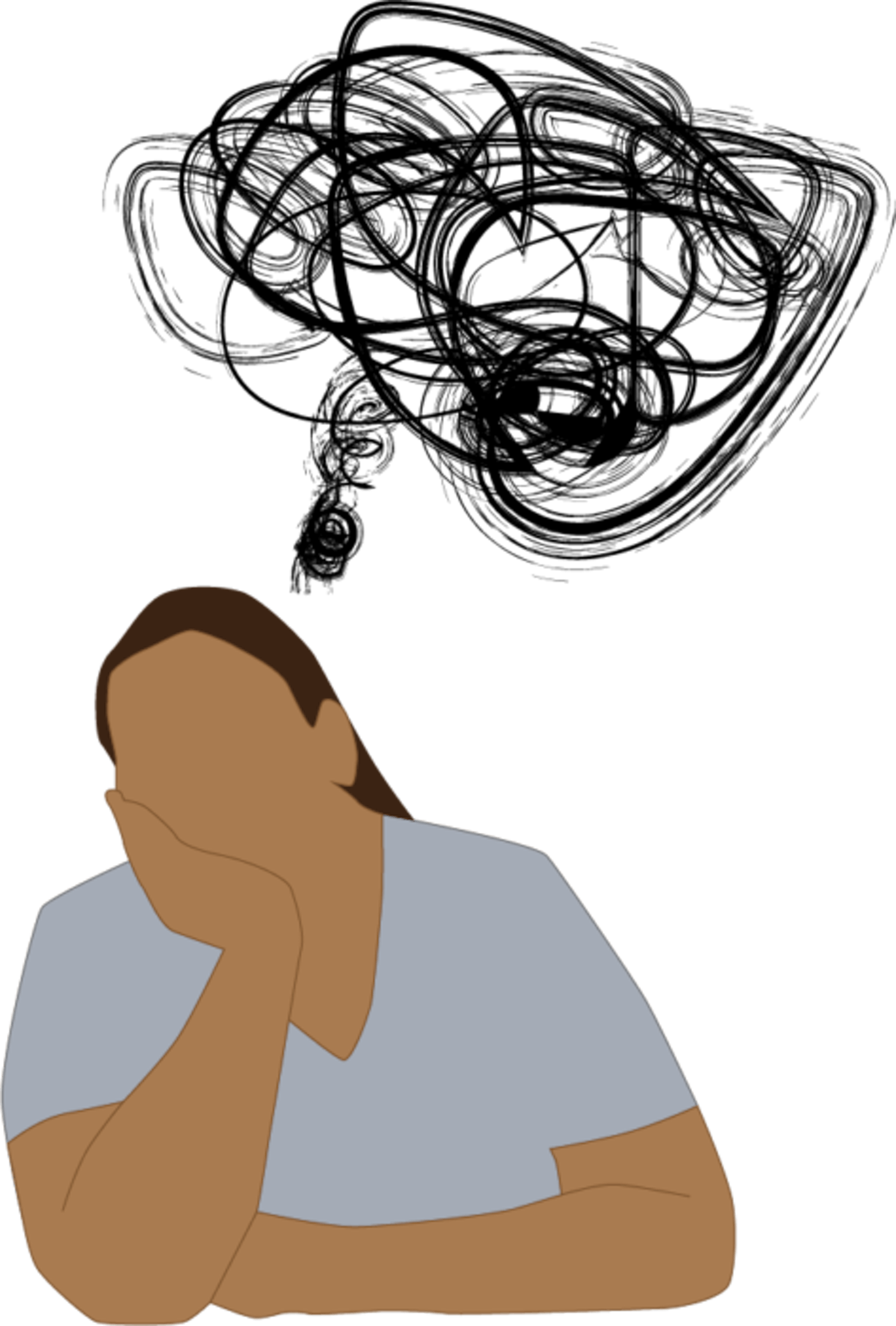
I didn’t recognize how bad of an overthinker I was until I caught myself judging how I sounded speaking in class with my mask on. I grew nervous that I sounded extremely muffled and my professor wouldn’t be able to hear what I was trying to articulate. I simultaneously feared the mask made me sound quieter, but I didn’t want to raise my voice because I didn’t want to sound like I was screaming. Since the cadence of my voice is partially out of my control whether I wear a mask or not, I recognized how completely ridiculous I was for ridiculing myself on how strange I thought I sounded in front of my class. I began to acknowledge all the things I overthink and recognized that from things like how well I’m doing academically to my relationships with my friends and family, I stress over my abilities of being a good student, daughter, sister, friend and person.
I stress about how other people perceive me or how my actions are interpreted by others, and I feel that I constantly have to prove I’m funny enough to fit into my friend groups, smart enough to attend such a prestigious university, Black enough to completely identify with those that look like me or adult enough to function successfully in society. However, I began to understand that as much as I stress over what everyone thinks of me and what I think of myself, no one else is thinking about me as much as I think they are because they are probably thinking just as heavily about themselves.
We place ourselves at the center of our own lives because it’s the only life we know; we are the main character of our life story. Our thoughts are constantly consumed with how we appear or reflect on other people because our concepts of right and wrong or acceptable and unacceptable are based on our relationships with each other, as well as the consequences we have watched others endure. If we see someone being negatively critiqued or ridiculed because of how they talk or what they wear, we subconsciously place them in a category we choose to separate ourselves from, and we make a point to do things in opposition to those “negative” behaviors. While these initial judgements might seem like harmless opinions, continuing to distinguish socially acceptable behaviors into categories can cause us to dictate every minuscule detail of our lives, such as how long we look in someone’s eyes while talking to them, or how close someone is to you in order to continue holding the door open.
Once we become trapped in this cycle of micromanaging every detail of our lives to fit into our personal definitions of social acceptance, we become exhausted in tyrannizing what we can and can’t do. We decide to dictate our own success to our own degree and try to discard the artificial standards we have created for ourselves. However, our measurements of success are modeled after how other people succeed, regardless of what route to success we take. We live our lives through the relationships and ideologies of the people around and before us, so leaving behind the presumed thoughts and opinions of other people is extremely difficult because those thoughts and opinions are how we experience life.
We strive to present the best version of ourselves to other people because we want those around us to have positive responses to our character. We desire to make our parents and family members proud, to make our friends enjoy being around us and to make our romantic partners believe we are the best companion to compliment them. It is not solely about caring what other people think about us; it is about wanting to live the most fulfilled life with the most developed character, but we subject ourselves to the opinions of others to define what that “most fulfilled life” and “most developed character” is. We can comprehend the notion that not everyone is going to like us because everyone’s interests are different. However, we want the number of people who don’t like us to be small, and even if we aren’t some people’s favorite person in the world, we don’t want them to have negative thoughts about us. We analyze ourselves based on what we think other people are analyzing about us, and in doing so, we over analyze the things we do in order to appear “better” in front of others and, in turn, ourselves.
While I don’t have the cure to overthinking, I can rationalize that if everyone is so focused on how they are perceived by the outside world, they probably don’t have time to over analyze every detail about someone else. We stress ourselves out over how many times we raise our hand in class or which shoes match those specific pair of jeans, but people are so focused on how long they’ve raised their own hand and the shoes that match their own pair of jeans that the small pieces of embarrassment we might feel when we succumb to something that falls into the socially unacceptable phase are honestly unnecessary. I won’t tell you to stop overthinking, because I believe that overthinking is better than not thinking at all. However, no one is thinking as hard about you as you are thinking about you, because they are probably thinking just as hard about themselves.
Sydni Brooks is a junior at Notre Dame Studying English and gender studies. She is originally from Cincinnati, Ohio, and calls Flaherty Hall home on campus. With equal passions in writing and helping others, she hopes to serve her community well in her future. She can be reached at sbrooks2@nd.edu or @sydnimaree22 on Twitter.
The views expressed in this column are those of the author and not necessarily those of The Observer.









